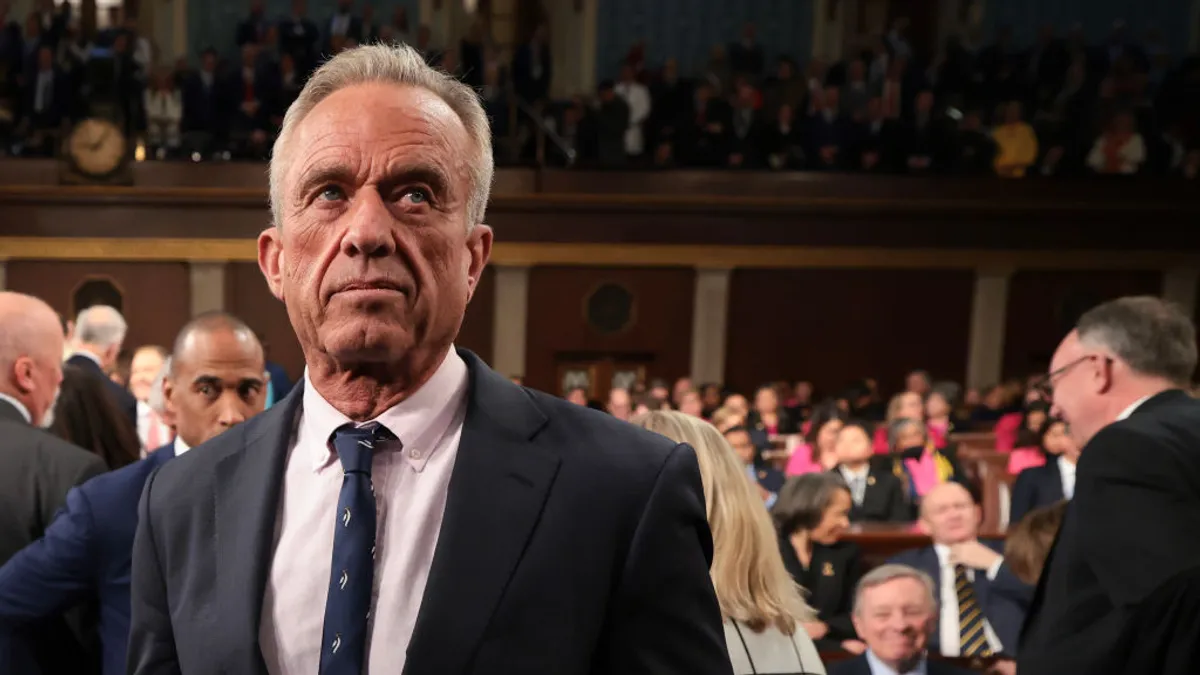HHS has once again pushed back implementation of a Biden-era rule that would provide a pathway for pharma companies to approve and market nonprescription drugs.
The rule, known as the Additional Condition for Nonprescription Use (ACNU), has been a long time coming after originally being introduced in 2022 and finalized at the end of 2024. For drugmakers, the rule offers an opportunity to switch from prescription to over-the-counter access, potentially boosting patents and advertising options. Patients are also set to benefit with potentially broader access to drugs.
But instead of going into effect as scheduled this month, the rule is delayed until May 27.
“Given that more time is needed to review the rule, FDA is delaying the effective date an additional 60 days," HHS Secretary Robert F. Kennedy Jr. wrote in the federal register notice.
The delay signals that health agencies are still learning how to deal with existing policies and regulations while also navigating a bold agenda stemming from the president’s desk.
Kennedy’s regulatory review
The delay aligns with President Donald Trump’s executive order that froze all new regulations pending review and approval from the administration. As a result of the order, ACNU implementation was delayed from Jan. 27 until March. But HHS is not done mulling it over, and it’s possible the agency could still decide to kill the rule entirely or kick it down the road again after the new 60-day period ends.
“It's potentially a positive development that FDA is allowing itself to be creative, and that the new Trump administration may also pursue that.”

Rebecca Dandeker
partner, Morgan Lewis
“[It] surprised me that the choice was [to] delay, rather than block,” said Rebecca Dandeker, partner at Morgan Lewis. “I would have thought they might have just said, ‘We're going to pack this in for right now.’ It doesn't seem to be among the priorities that [Kennedy] has talked about.”
There are a lot of unknowns about Kennedy’s priorities for HHS when it comes to specific regulations and policies, but he has already upended norms by reversing the policy of requiring public comments on proposed regulations before they’re implemented by federal health agencies. Experts are putting together the pieces of the administration’s goals based on their actions so far, and the ACNU delay could signal that some new regulations will still be fulfilled.
“We understand that the new health administrators in general are supportive of consumers taking on more control over their own healthcare decisions,” Dandeker said. “And moving products from prescription to OTC marketing is one way to do that.”
The decision to delay the rule, rather than block or cut it outright, could also mean that HHS will embrace innovation and new models under the Trump administration, Dandeker said.
“This rule represents a pretty creative thought process for FDA,” Dandeker said. “It's potentially a positive development that FDA is allowing itself to be creative, and that the new Trump administration may also pursue that.”
However, a Trump order from January to freeze communications by federal agencies may present another hurdle to implementing the ACNU rule and new regulations in general. Final guidance by HHS hasn’t been published for the ACNU rule.
“With a freeze on how the agency can communicate with industry, how are the things that are already set in motion going to actually be implemented?” Laura DiAngelo, senior director of research at Politico’s AgencyIQ, questioned during a webinar this week.
Further, the Trump administration is slashing thousands of federal jobs, which may dampen health agencies’ abilities to implement new regulations. These job cuts, coupled with the lack of communication, could ultimately delay implementation of the ACNU rule again, Alexander Gaffney, vice president of regulatory policy and intelligence at AgencyIQ, predicted.
A big leap for FDA
No matter when it comes into effect, the rule is facing a complicated rollout. As part of the conditional approval for the Rx-to-OTC switch, patients are required to go through a self-screening process conducted through an app to ensure the drug is right for them.
That shift away from the physician’s office and toward technology is a big leap for the agency, Dandeker said.
In open comments, several drugmakers and industry associations noted that the application process in the proposed rule was burdensome, and the final rule still requires applicants to submit a New Drug Application for a nonprescription drug with an ACNU. The NDAs must meet certain criteria and include the purpose and necessity of the ACNU, as well as a description of the self-selection and more.
The final rule also describes how applicants can file an abbreviated NDA, as well as labeling and clarification over meaningful difference requirements. Despite these changes, the “burdensome nature” of the final rule is still there, Dandeker said.
“The sponsor has to provide a lot of data and information to establish that the drug facts label and whatever this extra ACNU would be, that they're appropriate and can be safely used,” Dandeker said.



















